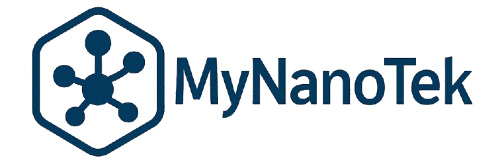The ethical debate: Nanotechnology and privacy concerns
Is Privacy the Price of Progress in Nanotechnology?
As nanotechnology continues to evolve, it brings with it a myriad of innovations that promise to revolutionize numerous aspects of our daily lives. From medicine to materials science, the applications of nanotech seem limitless. However, as we race towards a future filled with tiny tech marvels, an important question surfaces: Are we sacrificing our privacy in the pursuit of progress?
The Problem: Privacy Concerns in Nanotechnology
Nano-sized devices have the potential to monitor and collect data in ways previously unimaginable. This capability raises significant privacy concerns, as these devices could be used to gather personal information without consent. Consider the following implications:
- **Invasive Surveillance**: Nano-cameras and sensors could be used for surveillance, potentially leading to a world where every move is monitored.
- **Data Collection Without Consent**: The ability of nanotech to operate at such a small scale may lead to data collection that individuals are unaware of, infringing on personal privacy.
- **Healthcare Monitoring**: While health-monitoring nanodevices offer medical benefits, they also risk exposing sensitive health data.
“The advance of technology is based on making it fit in so that you don’t really even notice it, so it’s part of everyday life.”—Bill Gates
Agitation: The Ethical Dilemmas
The ethical implications of nanotechnology in regard to privacy are far-reaching. Beyond individual concerns, societal issues also arise. Here are some pressing ethical dilemmas:
- **Autonomy and Consent**: The use of nanotechnology in surveillance challenges the idea of consent. How can individuals consent to data collection if they are unaware of the methods being used?
- **Data Security**: With great amounts of data being collected, the security of this information becomes paramount. Breaches could have catastrophic effects on personal privacy.
- **Regulatory Challenges**: The rapid pace of nanotech innovations poses a challenge for regulators, who struggle to keep up with technology trends.
Nanotechnology holds the promise of transforming our world, but as we embrace these advances, we must also consider the ethical frameworks necessary to protect privacy. The balance between benefit and risk is delicate, and as Nobel Laureate Richard Feynman noted, “What I cannot create, I do not understand.” Thus, understanding is key to harnessing technology responsibly.
Solution: Navigating the Future of Nanotech with Ethics
While the challenges are significant, solutions are within reach. By prioritizing ethical considerations in the development and implementation of nanotechnology, we can ensure that its benefits are realized without compromising individual privacy. Here’s how:
- **Transparent Development**: Encourage transparency in nanotech development, ensuring that stakeholders are informed about how technologies operate and how data is used.
- **Robust Regulatory Frameworks**: Advocate for stronger regulations that are adaptable to emerging technology trends, protecting against misuse.
- **Public Engagement**: Foster open dialogues between developers, regulators, and the public to ensure that societal values guide technological advancements.
- **Ethical Design Principles**: Implement ethical design principles in the creation of nanotech applications to mitigate privacy risks from the outset.
Through collaboration and conscious effort, the ethical challenges posed by nanotechnology can be addressed. As we stand on the brink of a future defined by these tiny technologies, let us remember that ethics must guide innovation.
Conclusion: Shaping the Future Together
As we navigate the possibilities that nanotechnology offers, it is crucial to maintain a vigilant eye on privacy concerns. By fostering a culture of ethical responsibility and embracing transparency, we can ensure that nanotech innovations enhance our lives without compromising our rights.
Now it’s your turn. Engage with your community and policymakers to advocate for ethical approaches in technology development. Be informed and proactive about the privacy implications of the technologies you encounter. Together, we can shape a future where technology and ethics coexist harmoniously.
For further reading, consider exploring resources such as the National Academies Press on nanotechnology and privacy, or the National Privacy Commission for guidelines on data security.
